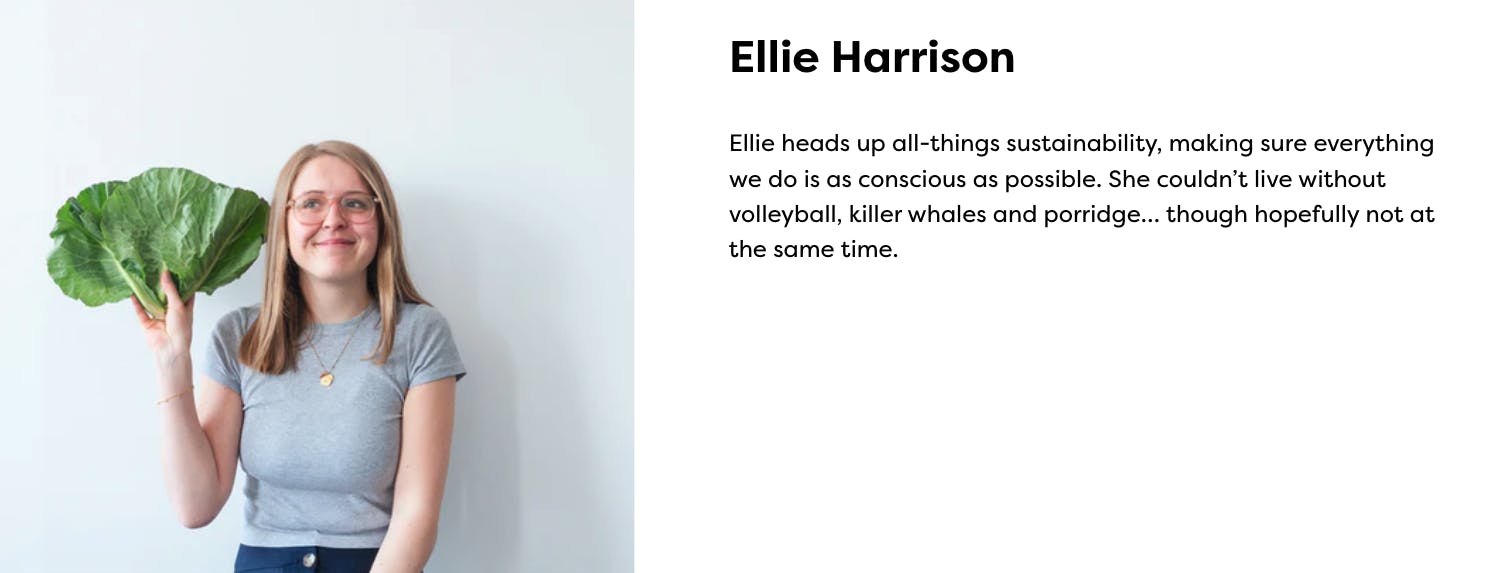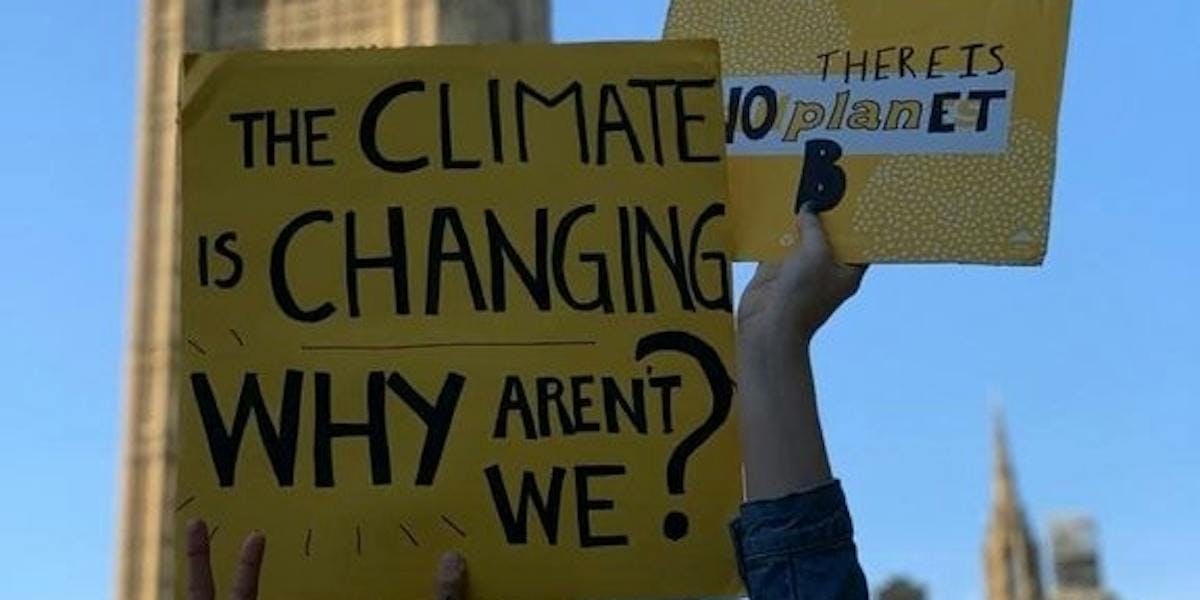Lifestyle
Plates For The Planet – How Does What We Eat Affect The Environment?
by Emily Neill
min read
What we eat is the part of life that holds the most significant opportunity to make a difference in our journey towards more sustainable lifestyles. Find out about the small adjustments that help, in our Plates For The Planet post.
We care a lot about what we eat. We structure our days around meal times, (even more so since lockdown right?), and food is important for both our physical and mental health and happiness. But what we decide to add to our menus is also an opportunity to save the planet.
Compared to other lifestyle changes, what you eat can single-handedly have the biggest positive impact on the planet. Today we’re exploring exactly how what we eat affects the environment and the small changes we can make to make a big difference.
Why does what you put on your plate matter?
Land Use
Half of the world’s habitable land is used for agriculture (growing crops, rearing and grazing livestock, the dairy industry and growing feed for livestock). The current scale of agriculture is exacerbating climate change and reducing biodiversity. Worldwide 50, 000 acres of forests are cleared each day with the equivalent of 10,000 football pitches lost daily in the Amazon Basin alone.
Losing trees – one of our most powerful natural carbon sinks – is what speeds the rate of climate change. The habitat this removes is what leads to the reduction in wildlife and biodiversity. If we take out the land needed to grow crops to feed livestock, the land needed for human food production decreases. If you want to enjoy more sustainable food, being powered by plants is a great way to go!
Eating more plant-based foods and fewer animal products significantly reduces the amount of land needed to produce the food on your plate.
Water
When we’re lucky to have access to it every day it’s easy to forget that this essential resource is finite, so it needs conserving where possible. And with food production accounting for at least 65% of our total water consumption worldwide, thinking about the food products we buy is a good place to start. Producing animal based foods uses more water than plant-based foods because both the livestock and the feed they eat need watering. While 1kg of meat requires between 5,000 and 20,000 litres of water, 1kg of wheat requires between 500 and 4,000 litres of water.
Crop products have a lower water footprint than animal products, so enjoying plant-based foods is a great way to reduce the amount of water needed to produce your meals.
Greenhouse emissions
Reduction in the world’s trees from deforestation contributes to greenhouse gases. But, what’s released during the production and transportation of food for our consumption is another consideration. Food production is responsible for 25% of the world’s greenhouse gas emissions, and while transportation of food products is harder to isolate and record (because food products are often shipped with products from other industries) there’s no denying that it forms a significant part of our carbon footprint.
Supporting local food suppliers and eating with the seasons are great ways to reduce the carbon footprint left by the journey your food takes from factory to plate.
Removal of wildlife
What we eat also impacts other living species; particularly those in ocean habitats. When fish from lower down the food chain are fished by humans this has a knock-on effect on the food available to animals higher up in the food chain. Removing fish from higher up in the chain also causes an imbalance in the ecosystem by reducing predation on smaller species. With 71% of the Earth’s surface covered in water, that’s a whole lot of precious wildlife worth protecting. But the world’s oceans, lakes and rivers are being depleted faster than they can be naturally replenished in order to meet the demand for fish. Perhaps counterintuitively, farmed fish actually have a lower carbon footprint and cause less disruption to wild ecosystems than wild-caught-fish.
Checking for various standards on food packets helps us to make sure our food is sourced and produced sustainably. With seafood these are MSC and ASC but looking beyond ocean habitats, Fairtrade (farmers and workers in developing countries), RSPCA Assured and RSPO (palm oil) are the other logos to look out for.
Ecosystems
The use of pesticides reduces soil quality, how efficiently farmers can use their land and pollutes the surrounding habitat (sometimes it’s poisonous to the wild species of animals and plants living there). This is one of the reasons bees now seem to fare better in cities than they do in rural areas. Aside from potentially being harmful to the bees themselves, the use of pesticides removes wild flowers from areas surrounding the farms, so the monoculture that modern farming now creates in our countryside leaves bees with fewer plant species to choose from for pollen and exposes them to more pesticides.
Buying organic products protects your health as well as the health of the wildlife we share the planet with.
Plastic
At the moment where we buy our food from and the types of products we choose determines how much plastic is used to package the products. This is an issue extending to almost every part of our lives, from the fashion and beauty industries to the car industry.
A lot of brands are moving towards plastic-free supply chains with inspiring developments like Morrisons plastic free fruit and veg areas and recycling returns initiatives like Loop making it easy to recycle single-use plastic from popular products.
Food waste
We shared our tips for reducing your food waste but this is also connected with eating out in public places. 173, 000 tonnes of food is wasted per year by pubs alone with even more wasted in restaurants. To reduce our impact on the planet via the food we eat, helping the hospitality industries to function efficiently in ways with minimal food waste is important too (and will save these businesses money). Thinking about portion sizes, food that can be composted, and initiatives to gift food to people or animal (as opposed to throwing away unwanted food), is the way to go here.
Check out Too Good To Go if you’d like to start rescuing unsold food from cafes, shops and restaurants near you.
Note from our Sustainability Manager

“allplants exists to solve the persistent challenges we’re facing — challenges like climate change and unequal distribution and access (which lead to both malnutrition and obesity epidemics) —by addressing major barriers to plant-based eating, like convenience and taste, which countless studies have shown to be the most significant action you can take in reducing personal carbon footprint.
We’ve also recently collected data, specific to our own supply chain, and found a 80% decrease in global warming potential from a typical beef chilli, to our very own Smoky Soul Chilli. Simply put, if every meal worldwide were plant-based, we would cut the contribution to global warming of protein production from 0.5 to 0.1C, helping us avoid frankly terrifying 3C+ warming scenarios.”
allplants firmly believe in the power of plants and our mission is to show the world just how delicious and varied a plant-based lifestyle can be!
By Emily Neill
Emily is our Content and Community Assistant by day, and qualified PT by… later that day. She couldn’t live without exercise (makes sense) so can usually be spotted in her favourite spin class, with our Three Mushroom Risotto for afters.
Let us take care of dinner
We help to make eating more plants easy and delicious. Fancy letting us take care of dinner? Check out our delicious meals here.
Shop now
